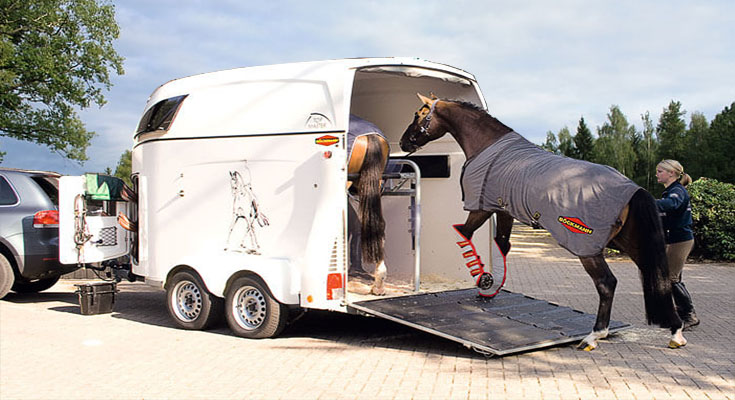Horse transport is an important part of the equine industry. It is a vital part of the transportation system in most parts of the world.
Transport providers are responsible for moving horses from one place to another, usually in order to sell them at a different location or for breeding purposes.
It is important to choose the right horse transport provider and this guide will help you with that.
The Different Types of Horse Transports
Horse transport is a specialized type of transport to move horses from one place to another. There are different types of horse transports, each with its own advantages and disadvantages.
A horse trailer is a specially designed vehicle that has been built to carry horses. They are typically equipped with ramps, stalls, and other features that make it easier for the driver to load the animals into the trailer. Horse trailers are most often used when transporting horses over long distances as they provide extra space for the animal’s food and water as well as hay or straw bedding.
A horse carrier is a vehicle designed specifically for carrying horses. They can be pulled by a truck or other vehicle and come in many different sizes depending on how many horses they need to carry at once. Horse carriers can be used for both short-distance travel and long-distance travel but are not typically used when transporting animals over long distances because of their limited space for food, water, or bedding materials.
Different Factors to Consider When Choosing a Type of Horse Transport
A horse transport is a vehicle that is used to transport horses or other livestock. There are many factors to consider when choosing the type of horse transport. Here we will cover some of the most important considerations.
Costs are one of the most important factors to consider when choosing a type of horse transportation. Horse trailers, for example, can be expensive because they typically require a trailer hitch and additional fuel costs. Wagons, on the other hand, can be cheaper and more efficient than horse trailers because they don’t require any additional equipment or fuel costs.
Common Mistakes When Using Horse Transports
Horses are sensitive to motion sickness, which is why it is important to take care of them when travelling.
The horses can get motion sickness in a variety of ways. They may not like the motion, or they may be sensitive to the smells or the noises that they experience during travel.
There are a few things you can do to stop your horse from getting motion sickness while travelling. You can feed your horse before you leave and give them a bucket of water on board too. You could also try using car sickness bands in the car, which will help calm them down and prevent them from feeling sick from all of the movement around them.
Conclusion: 4 Tips for Getting Your Horses on the Road Safely
The first step is to make sure that your horse is properly groomed. You want them to look their best and be as happy as possible.
The second thing you can do is to make sure that your horse has the right type of shoes for the terrain they will be walking on. If they are going to be walking on pavement, then they need a different shoe than if they are going to be walking on dirt or grass.
The third thing you can do is make sure that your horse has a well-fitting saddle with a good girth strap. You want their saddle to fit them well and not move around while they are riding.
Finally, you should always have a good quality bridle with reins that are long enough for you to have control of the horse without having to pull too hard on them at any point in time.





